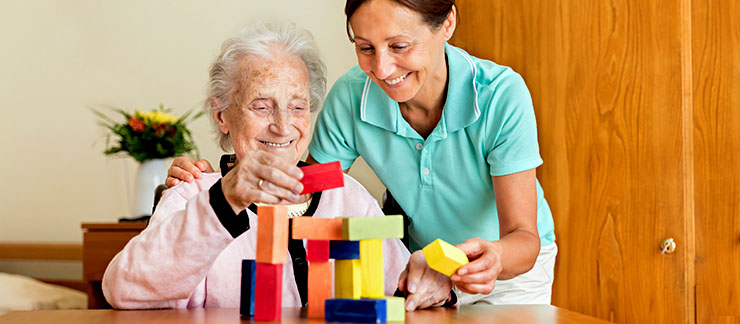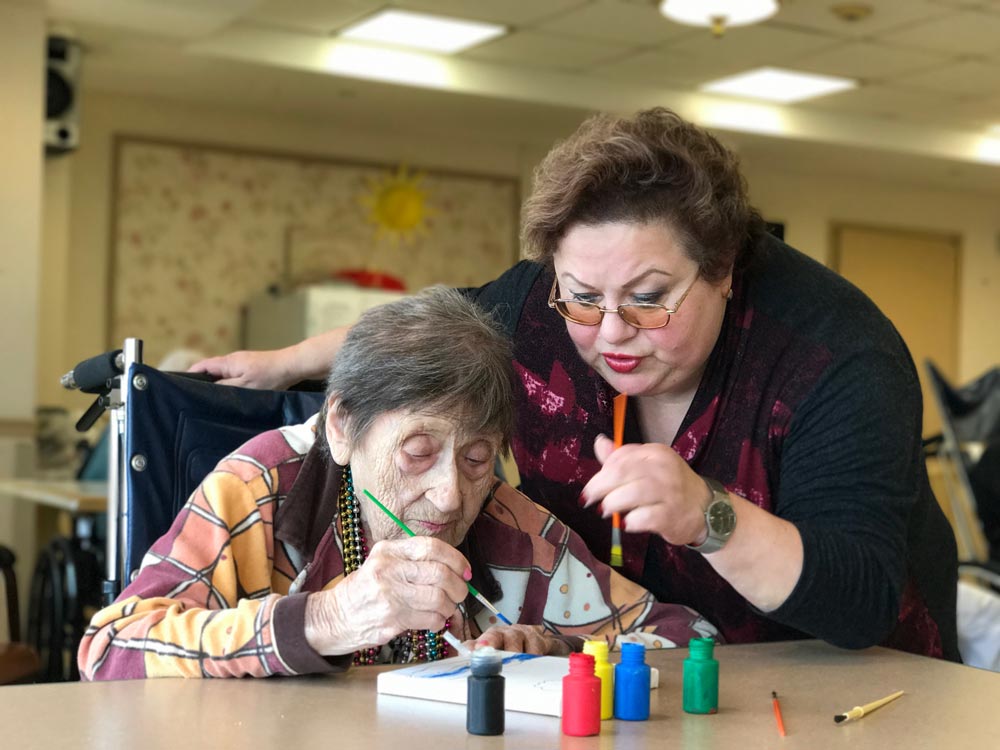Memory Care Facilities Charlotte: Developing a Secure and Nurturing Community
Memory Care Facilities Charlotte: Developing a Secure and Nurturing Community
Blog Article
Reliable Dementia Care Approaches for a Better Quality of Life
In the world of mental deterioration treatment, the implementation of reliable strategies is vital for boosting the top quality of life for both people impacted by the disease and their caretakers. Comprehending the unique stages of mental deterioration permits customized treatments that resolve the evolving requirements of clients-- from advertising cognitive interaction in the onset to making sure self-respect in late-stage treatment. Moreover, the value of interaction techniques and a helpful atmosphere can not be overstated. What particular strategies can be embraced to promote an ambience of empathy and link throughout this tough journey?
Recognizing Mental Deterioration Stages

In the very early phase, people may experience light memory loss and difficulty with acquainted tasks. Care strategies need to concentrate on preserving self-reliance and giving cognitive stimulation. In the late phase, people may lose the capacity to need and interact assistance with daily activities.
Identifying these stages enables caregivers to adapt their strategies and supply assistance that lines up with the individual's current demands, inevitably helping with much better management of the condition and improving the general caregiving experience. Understanding dementia stages is consequently a foundational element of effective dementia care.
Communication Methods
Effective interaction is a crucial part of mental deterioration care, particularly as the disease advances through its different phases. As cognitive capabilities decline, it ends up being necessary to adjust interaction strategies to satisfy the requirements of people with mental deterioration. Utilizing clear, easy language is crucial; caregivers should avoid intricate sentences and lingo, choosing instead for simple, succinct expressions.
Non-verbal interaction plays an equally significant function. Faces, motions, and tone of voice can share warmth and understanding, typically improving verbal messages. Maintaining eye call and an open position cultivates a feeling of link and safety and security, urging people with mental deterioration to engage even more fully in discussions.
It is also advantageous to be individual and permit sufficient time for reactions. People might require additional time to process information and develop their thoughts. Duplicating or rephrasing questions might be required if comprehension appears lacking.
Finally, focusing on the individual's interests and individual history can promote much more purposeful interactions. Taking part in acquainted subjects can evoke favorable memories and emotions, additionally enriching the communication experience (memory care facilities charlotte). By using these techniques, caregivers can significantly boost the top quality of interactions, promoting self-respect and respect for people dealing with mental deterioration
Producing a Safe Environment
Creating a secure atmosphere for people with mental deterioration is vital to promoting their well-being and independence. A well-designed room can substantially decrease the dangers of crashes and improve the quality of life for those impacted by this problem. Key factors to consider consist of minimizing mess and guaranteeing clear pathways to help with mobility. Removing or protecting possible hazards, such as loosened carpets, sharp things, or harmful substances, is vital in protecting against drops and injuries.
Lights plays a crucial function too; making use of all-natural light wherever possible and integrating night lights can assist people browse their surroundings safely. Furthermore, classifying rooms and essential things can help memory and positioning, reducing confusion and anxiousness.
It is additionally crucial to develop an acquainted atmosphere by customizing the room with photos or cherished things, which can stimulate positive memories and a sense of belonging.
Incorporating furniture that is both functional and comfy adds to a helpful ambience, enabling individuals to participate in daily tasks easily. Inevitably, a safe environment not only safeguards versus physical threats but also fosters a complacency, which is crucial for the psychological wellness of those living with dementia.
Involving Routines and tasks
Engaging tasks and structured routines are crucial parts in the treatment of people with mental deterioration, as they advertise cognitive function, psychological stability, and social communication. These activities should be tailored to the individual's passions, capabilities, and stage of cognitive decrease. dementia care charlotte. Straightforward, recurring tasks such as horticulture, arts and crafts, or food preparation can offer purposeful involvement, allowing people to utilize their skills while promoting a sense of success
Developing a day-to-day regimen aids develop a foreseeable environment, which can minimize stress and anxiety and confusion. This framework can consist Get the facts of marked times for dishes, activities, and rest, guaranteeing a well balanced strategy to day-to-day life. Incorporating social communications into these routines, such as team activities or visiting household, further enhances psychological wellness and fights feelings of seclusion.
In addition, exercises, such as dancing or walking, not only advertise physical health and wellness however also promote mental involvement. Urging engagement in neighborhood events or support system can provide extra possibilities for socialization. Overall, the integration of organized regimens and interesting tasks is necessary in enhancing the quality of life for individuals with dementia, cultivating freedom and self-respect while addressing their one-of-a-kind requirements.
Sustaining Caregiver Well-Being
Taking care of people with mental deterioration can be a demanding and emotionally tiring experience, making it critical to focus on the health of caretakers. Caretakers typically face high degrees of stress and anxiety, anxiety, and physical fatigue, which can lead to fatigue if not resolved appropriately. To support their well-being, it is necessary to apply a complex technique.
First, giving caregivers with access to education and resources can empower them with strategies to handle day-to-day obstacles. Support teams, both in-person and online, provide a system for sharing experiences, cultivating a sense of neighborhood, and reducing feelings of isolation. Additionally, break care solutions allow caregivers to take necessary breaks, permitting them time to reenergize and go to to their own wellness demands.
Moreover, encouraging caretakers to take part in self-care methods-- such as regular exercise, healthy and balanced eating, and mindfulness-- can substantially boost their durability. Promoting open communication regarding their feelings and challenges with relative or experts likewise assists reduce psychological problems.
Final Thought
Finally, reliable mental deterioration treatment techniques encompass an extensive understanding of the disease's phases, the implementation of clear communication techniques, the establishment of a risk-free environment, and the promo of organized regimens and appealing activities. Additionally, focusing on the health of caregivers is necessary to maintaining high quality treatment. By incorporating these strategies, the total lifestyle for individuals with dementia can be considerably enhanced, promoting a supportive ambience that advertises self-respect and psychological wellness.
In the world of dementia treatment, the execution of effective approaches is critical for enhancing the top quality of life for both individuals influenced by the illness and their caretakers. By using these techniques, caregivers can significantly boost the quality of communications, promoting self-respect and regard for individuals living with dementia.

Caring site link for people with mental deterioration can additional info be a requiring and psychologically taxing experience, making it vital to prioritize the health of caregivers.
Report this page